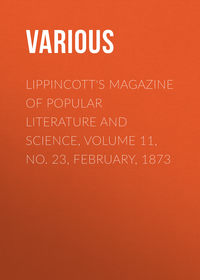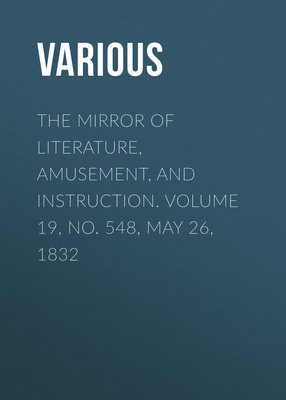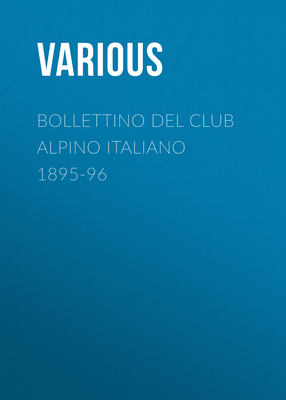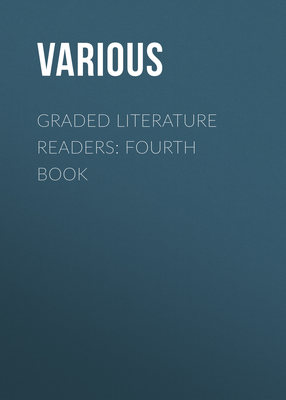Читать книгу: «Lippincott's Magazine of Popular Literature and Science, Volume 11, No. 23, February, 1873», страница 15
MADISON AS A TEMPERANCE MAN
Many years ago, when the temperance movement began in Virginia, ex-President Madison lent the weight of his influence to the cause. Case-bottles and decanters disappeared from the sideboard at Montpelier—wine was no longer dispensed to the many visitors at that hospitable mansion. Nor was this all. Harvest began, but the customary barrel of whisky was not purchased, and the song of the scythemen in the wheatfield languished. In lieu of whisky, there was a beverage most innocuous, unstimulating and unpalatable to the army of dusky laborers.
The following morning, Mr. Madison called in his head-man to make the usual inquiry, "Nelson, how comes on the crop?"
"Po'ly, Mars' Jeems—monsus po'ly."
"Why, what's the matter?"
"Things is seyus."
"What do you mean by serious?"
"We gwine los' dat crap."
"Lose the crop! Why should we lose it?"
"'Cause dat ar crap ar heap too big a crap to be gethered 'thout whisky. 'Lasses-and-water nuver gethered no crap sence de woil' war' made, ner 'taint gwine to."
Mr. Madison succumbed: the whisky was procured, the "crap" was "gethered," case-bottles and decanters reappeared, and the ancient order was restored at Montpelier, never again to be disturbed.
NOTES
Amidst the recent hurly-burly of politics in France, involving the fate of the Thiers government, if not of the republic itself, a minor grievance of the artists has probably been little noticed by the general public. Yet a grievance it was, and one which caused men of taste and sentiment to cry out loudly. The threatened act of vandalism against which they protested was a proposal to fell part of the Forest of Fontainebleau. The castle and forest have long belonged to the state, but why the woods should now be cut down by the government is not clear. The motive is probably to turn the fine timber into cash, though a Paris wit, in pretended despair of other explanation, jokingly alleged, at the time of Prince Napoleon's late expulsion from France, that the government was afraid the prince, taking refuge in its dense recesses, might there conceal himself (à la Charles II., we presume) in one of its venerable oaks. At any rate, it was arranged to level a part of the timber, and on hearing of this threatened mutilation of a favorite resort the French artists rallied to beg M. Thiers, like the character in General Morris's ballad, to "spare those trees." And well may they petition, for the forest contains nearly thirty-five thousand acres, abounding in beautiful and picturesque scenery. It can boast finer trees than any other French forest, while its meadows, lawns and cliffs furnish specimens of almost every plant and flower to be found in France. Now, when we add that its views are exceedingly varied, its rocks, ravines, plateaus and thickets each offering some entirely different and admirable study to the landscape-painters who frequent it in great numbers during the spring and autumn months (for it is only fourteen or fifteen leagues out of Paris, on the high road to Lyons), we have shown reason enough for the consentaneous action on the part of the men and women of the brush and pencil.
The traveled reader will hardly need to be told that good judges consider the forest and castle to compose the finest domain in France. But there are also numberless historic reminiscences intertwined with Fontainebleau. And, by the way, it was originally known as the Forêt de Bierre, until some thirsty huntsmen, who found its spring deliciously refreshing, rebaptized it as Fontaine Belle Eau. Such, at least, is the old story. The first founding of a royal residence there dates at least as far back as the twelfth century, and possibly much farther, while the present château was begun by Francis I. in the sixteenth. So many famous historic events, indeed, have taken place within the precincts of the forest that the committee of "Protection Artistique" is pardonable in claiming that "Fontainebleau Forest ought to be ranked with those national historic monuments which must at all hazards be preserved for the admiration of artists and tourists," as well as of patriotic Frenchmen. What illustrations shall we select from among the events connected with it, about which a thousand volumes of history, poetry, art, science and romance have been composed? At Fontainebleau, Charles V. was royally feasted by Francis; there the Edict of Nantes was revoked; there Condé died; there the decree of divorce between Napoleon and Josephine was pronounced; and there the emperor afterward signed his own abdication. It is true that nobody proposes to demolish the castle, and that is the historic centre; but the petitioners claim that it is difficult and dangerous to attempt to divide the domain into historic and non-historic, artistic and non-artistic parts, with a view to its mutilation. There is ground for hoping that a favorable response will be given to the eloquent appeal of the artists and amateurs.
The vanity of Victor Hugo, though always "Olympian," perhaps never mounted to a sublimer height than in the reply he sent to M. Catulle Mendes on receiving from him the news of Gautier's death. It contained but half a dozen lines, yet found space to declare, "Of the men of 1830, I alone am left. It is now my turn." The profound egotism of "il ne reste plus que moi" could not escape being vigorously lashed by V. Hugo's old comrades of the quill, dating back with him to 1830, and now so loftily ignored. "See, even in his epistles of condolence," they cry, "the omnipresent moi of Hugo must appear, to overshadow everything else!" One indignant writer declares the poet to be a mere walking personal pronoun. Another humorously pities those still extant contemporaries of 1830 who, after having for forty years dedicated their songs and romances and dramas to Hugo, now learn from the selfsame maw which has greedily gulped their praises that they themselves do not exist, never did exist. One man of genius slyly writes: "Some of us veterans will find ourselves embarrassed—Michelet, G. Sand, Janin, Sandeau et un pen moi. Is it possible that we died a long time ago, one after the other, without knowing it? Was it a delusion on our part to fancy ourselves existing, or was our existence only a bad dream?" But to Victor Hugo even these complaints will perhaps seem to smoke like fresh incense on the altar of self-adulation which this great genius keeps ever lighted.
The reader may remember the story of that non-committal editor who during the late canvass, desiring to propitiate all his subscribers of both parties, hoisted the ticket of "Gr– and –n" at the top of his column, thus giving those who took the paper their choice of interpretations between "Grant and Wilson" and "Grceley and Brown." A story turning on the same style of point (and probably quite as apocryphal, though the author labels it "historique") is told of an army officers' mess in France. A brother-soldier from a neighboring detachment having come in, and a champenoise having been uncorked in his honor, "Gentlemen," said the guest, raising his glass, "I am about to propose a toast at once patriotic and political." A chorus of hasty ejaculations and of murmurs at once greeted him. "Yes, gentlemen," coolly proceeded the orator, "I drink to a thing which—an object that—Bah! I will out with it at once. It begins with an R and ends with an e."
"Capital!" whispers a young lieutenant of Bordeaux promotion. "He proposes the Republique, without offending the old fogies by saying the word."
"Nonsense! He means the Radicale," replies the other, an old captain from Cassel.
"Upon my word," says a third as he lifts his glass, "our friend must mean la Royaute."
"I see!" cries a one-legged veteran of Froschweiler: "we drink to la Revanche."
In fact, the whole party drank the toast heartily, each interpreting it to his liking.
In the hands of a Swift even so trivial an incident might be made to point a moral on the facility with which alike in theology and politics—from Athanasian Creed to Cincinnati or Philadelphia Platform—men comfortably interpret to their own diverse likings some doctrine that "begins with an R and ends with an e," and swallow it with great unanimity and enthusiasm.
Possibly the death of Mr. Greeley, after a prolonged delirium induced in part by political excitement, may add for Americans some fresh interest to the theory of a paper which just previous to that pathetic event M. Lunier had read before the Paris Academy of Medicine. The author confessed his statistics to be incomplete, but regarded them as ample for the decisive formulation of the proposition that great political crises tend to increase the number of cases of mental alienation. The leading point of his elaborate argument appears to be the classification of fresh cases of insanity developed since the beginning of the late French war. The strongest comparison is one indicating an excess of seven per cent, in the number of such cases, proportioned to the population in the departments conquered and occupied by the Germans, over those which they did not invade. Finally, M. Lunier reckons the cases of mental alienation induced by the late political and military events in France at from twelve hundred to fifteen hundred. Politics without war may, it is considered, produce the same results—results not at all surprising, of course, except as to their extent. As to this last, if M. Lunier's figures and deductions be correct, the mental strain of exciting politics is even more destructive than has been generally supposed.
LITERATURE OF THE DAY
Gareth and Lynette. By Alfred Tennyson, D.C.L., Poet-Laureate. Boston: J.R. Osgood & Co.
"With this poem the author concludes the Idyls of the King." The occasion is a tempting one to review the long series of Arthurian lays written by Tennyson, from the Mort d' Arthur, and the pretty song about Lancelot and Guinevere, and the first casting of "Elaine's" legend in the form of The Lady of Shallot, down to the present tale, flung like a capricious field flower into a wreath complete enough without it. The poet's first adventure into the subject—the mysterious, shadowy and elevated performance called the Mort d' Arthur—will probably be always thought the best. Tennyson, when he wrote it, was just trying the peculiarities of his style: he was testing the quality of his cadences, the ring of his long sententious lines repeated continually as refrains, and the trustworthiness of his artful, much-sacrificing simplicity. He put as it were a spot or two of pigment on the end of his painting-knife, and held it up into the air of the vaporous traditions of the Round Table. It stood the test, it had the color; but the artist, uncertain of his style, his public and his own liking, made a number of other tentatives before he could decide to go on in the manner he commenced with. He tried the Guinevere, laughing and galloping in its ballad-movement; he tried the Shallot, with a triple rhyme and a short positive refrain, like a bell rung in an incantation, and brought up every minute by a finger pressed upon the edge. Either of these three—although the metre of the first was the only one endurable by the ear in the case of a long series of poems—either of these had, it may be positively said, a general tone more suitable to the ancient feeling, and more consistent with the duty of a modern poet arranging for new ears the legends collected by Sir Thomas Malory, than the general tone of the present Idyls. Those first experiments, charged like a full sponge with the essence and volume of primitive legend, went to their purpose without retrospection or vacillation: each short tale, whether it laughed or moaned, promulgated itself like an oracle. The teller seemed to have been listening to the voice of Fate, and whether, Guinevere swayed the bridle-rein, or Elaine's web flew out and floated wide, or Lancelot sang tirra-lirra by the river, it was asserted with the positiveness of a Hebrew chronicle, which we do not question because it is history. But we hardly have such an illusion in reading the late Idyls. We seem to be in the presence of a constructor who arranges things, of a moralist turning ancient stories with a latent purpose of decorum, of an official Englishman looking about for old confirmations of modern sociology, of a salaried laureate inventing a prototype of Prince Albert. The singleness of a story-teller who has convinced himself that he tells a true story is gone. That this diversion into the region of didactics is accompanied, on our poet's part, with every ingenuity of ornament, and every grace of a style which people have learned to like and which he has made his own, need not be said. The Tennysonian beauties are all there. The work takes its place in literature, obscuring the Arthurian work of Dryden, as Milton's achievement of Paradise Lost obscured the Italian work on the same subject which preceded it. The story is told, and the things of the Round Table can hardly be related again in English, any more than the tale of Troy could be sung again in Greek after the poem of Homer. But beauties do not necessarily compose into perfect Beauty, and the achievement of a task neatly done does not prevent the eye from wandering over the work to see if the material has been used to the best advantage. So, the reader who has allowed himself to rest long in the simple magic evoked by Malory or in the Celtic air of Villemarque's legends, will be fain to ask whether a man of Tennyson's force could not have given to his century a recasting which would have satisfied primitive credulity as well as modern subtility. There is an antique bronze at Naples that has been cleaned and set up in a splendid museum, and perhaps looks more graceful than ever; but the pipe that used to lead to the lips, and the passage that used to communicate with the priest-chamber, are gone, and nothing can compensate for them: it used to be a form and a voice, and now it is nothing but a form.
We have just observed that in our opinion the first essays made by the Laureate with his Arthurian material had the best ring, or at least had some excellences lost to the later work. Gareth and Lynette, however, by its fluency and simplicity, and by not being overcharged with meaning, seems to part company with some of this overweighted later performance, and to attempt a recovery of the directness and spring of the start. It is, however, far behind all of them in a momentous particular; for in narrating them, the poet, while able to keep up his immediate connection with the source of tradition, and to narrate with the directness of belief, had still some undercurrent of thought which he meant to convey, and which he succeeded in keeping track of: Arthur and Guinevere, in the little song, ride along like primeval beings of the world—the situation seems the type of all seduction; the Lady of Shallot is not alone the recluse who sees life in a mirror, she is the cloistered Middle Age itself, and when her mirror breaks we feel that a thousand glasses are bursting, a thousand webs are parting, and that the times are coming eye to eye with the actual. In those younger days, Tennyson, possessed with a subject, and as it were floating in it, could pour out a legend with the credulity of a child and the clear convincing insight of a teacher: when he came in mature life to apply himself to the rounded work, he had more of a disposition to teach, and less of that imaginative reach which is like belief; and now he is telling a story again for the sake of the story, but without the deeper meaning. Lynette is a supercilious damsel who asks redress of the knights of the Round Table: Gareth, a male Cinderella, starts from the kitchen to defend her, and after conquering her prejudices by his bravery, assumes his place as a disguised prince. It is a plain little comedy, not much in Tennyson's line: there are places where he tries to imitate the artless disconnected speech of youth; and here, as with the little nun's babble in Guinevere, and with some other passages of factitious simplicity, the poet makes rather queer work:
Gold? said I gold?—ay then, why he, or she,
Or whosoe'er it was, or half the world,
Had ventured—had the thing I spake of been
Mere gold—but this was all of that true steel
Whereof they forged the brand Excalibur,
And lightnings played about it in the storm, etc.
It may be questioned whether hap-hazard talk ever, in any age of human speech, took a form like that, though it is just like Tennyson in many a weary part of his poetry. The blank verse, for its part, is broken with all the old skill, and there are lines of beautiful license, like this:
Camelot, a city of shadowy palaces,
or strengthened with the extra quantity, like this:
Stay, felon knight, I avenge me for my friend!
or imitating the motion described, as these:
The hoof of his horse slept in the stream, the stream
Descended, and the Sun was washed away;
but occasionally the effort to give variety leads into mere puzzles and disagreeable fractures of metre, such as the following quatrain:
Courteous or bestial from the moment,
Such as have nor law nor king; and three of these
Proud in their fantasy, call themselves the Day,
Morning-Star, and Noon-Sun, and Evening-Star.
The first line in this quotation, if it be not a misprint of the American edition, can only be brought to any kind of rule by accenting each polysyllable on the last, and is not, when even that is done, a pleasant piece of caprice. There are plenty of phrases that shock the attention sufficiently to keep it from stagnating on the smooth surface of the verse; such are—"ever-highering eagle-circles," "there were none but few goodlier than he," "tipt with trenchant steel," and the expression, already famous, of "tip-tilted" for Lynette's nose; to which may be added the object of Gareth's attention, mentioned in the third line of the poem, when he "stared at the spate." But in the matter of descriptive power we do not know that the Laureate has succeeded better for a long time past in his touches of landscape-painting: the pictures of halls, castles, rivers and woods are all felicitous. For example, this in five lines, where the travelers saw
Bowl-shaped, through tops of many thousand pines,
A gloomy-gladed hollow slowly sink
To westward; in the deeps whereof a mere,
Round as the red eye of an eagle-owl,
Under the half-dead sunset glared; and cries
Ascended.
Or this simple and beautiful sketch of crescent moonlight:
Silent the silent field
They traversed. Arthur's harp tho' summer-wan,
In counter motion to the clouds, allured
The glance of Gareth dreaming on his liege.
A star shot.
It is still, perfect, and utterly simple sketches like these, thrown off in the repose of power, that form the best setting for a heroic or poetical action: what better device was ever invented, even by Tennyson himself, for striking just the right note in the reader's mind while thinking of a noble primitive knight, than that in another Idyl, where Lancelot went along, looking at a star, "and wondered what it was"? Of a more imaginative kind of beauty are the descriptions of the walls of rock near Castle Dangerous, decked by the hermit with tinted bas-reliefs, and the fine one of Camelot, looking as if "built by fairy kings," with its city gate surmounted by the figures of the three mystic queens, "the friends of Arthur," and decked upon the keystone with the image of the Lady, whose form is set in ripples of stone and crossed by mystic fish, while her drapery weeps from her sides as water flowing away. The most charming part of the character-painting is where the shrewish Lynette, as her estimate of the scullion-knight gradually rises in view of his mighty deeds, evinces her kindlier mood, not directly in speech, but by catches of love-songs breaking out of the midst of her scornful gibes: this is a very subtle and suitable and poetical way of eliciting the under-workings of the damsel's mind, and it is continued through five or six pages in an interrupted carol, until at last the maiden, wholly won, bids him ride by her side, and finishes her lay:
O trefoil, sparkling on the rainy plain,
O rainbow, with three colors after rain,
Shine sweetly: thrice my love hath smiled on me.
The allegory by which Gareth's four opponents are made to form a sort of stumbling succession representing Morn, Noon, Evening, and Night or Death, is hardly worth the introduction, but it is not insisted upon: the last of these knights, besieging Castle Perilous in a skull helmet, and clamoring for marriage with Lynette's sister Lyonors, turns out to be a large-sized, fresh-faced and foolish boy, who issues from the skull "as a flower new blown," and fatuously explains that his brothers have dressed him out in burlesque and deposited him as a bugbear at the gate. This is not very salutary allegorizing, but it is soon over, and the poem closed, leaving a pleasant perfume in the reader's mind of chivalry, errantry and the delicious days before the invention of civilization.
Handbook of the History of Philosophy. By Dr. Albert Schwegler. Translated arid annotated by James Hutchison Stirling, LL.D. New York: Putnam.
Spinoza teaches that "substance is God;" but, says Mr. Matthew Arnold, "propositions about substance pass by mankind at large like the idle wind, which mankind at large regards not: it will not even listen to a word about these propositions, unless it first learns what their author was driving at with them, and finds that this object of his is one with which it sympathizes." There is no way of getting the multitude to listen to Spinoza's Ethics or Plato's Dialectics but something is gained when a man of science like Dr. Schwegler happens to possess the gift of fluent and easy statement, and can pour into a work like the present, which is the expansion of a hasty encyclopaedia article, the vivacity of current speech, and the impulse which gives unity to a long history while it excludes crabbed digressions. It happens that the American world received the first translation of Schwegler's History of Philosophy; and it may be asked, What need have Americans of a subsequent version by a Scotch doctor of laws? The answer is, that Mr. Seelye's earlier rendering was taken from a first edition, and that the present one includes the variations made in five editions which have now been issued. Even on British ground the work thus translated has reached three editions, and the multitude of "mankind at large," hearing of these repeated editions in Edinburgh and of twenty thousand copies sold in Germany, may begin to prick up its ears, and to think that this is one of the easily-read philosophies of modern times, of which Taine and Michelet have the secret. It is not so: abstractions stated with scientific precision in their elliptic slang or technicality are not and cannot be made easy reading: the strong hands of condensation which Schwegler pressed down upon the material he controlled so perfectly have not left it lighter or more digestible. The reader of this manual, for instance, will be invited to consider the Eleatic argumentation that nothing exists but Identity, "which is the beënt, and that Difference, the non-beënt, does not exist; and therefore that he must not only not go on talking about difference, but that he must not allude to difference as being anything but the non-beënt; for if he casts about for a synonym, and arrives at the notion that he may say non-existent for non-beënt, he is abjectly wrong, for beënt does not mean existent, and non-beënt non-existent, but it must be considered that the beënt is strictly the non-existent, and the existent the non-beënt." Such are the amenities of expression into which an eloquent metaphysician, trying his best to speak popularly, is led. Yet the book is readable to that orderly application of the mind which such studies exact, and is the firmest and strictest guide now speaking our English tongue. Its steady attention to the business in hand, from the pre-Socratic philosphies down through the great age of the Greek revival, to Germany and Hegel at last, is most sustained and admirable. Indeed, few thinkers of Anglo-Saxon birth are able even to praise such a book as it deserves. The only real impediment to its acceptance by scholars of our race is that its attention to modern philosophy is rather partial, the French and the Germans getting most of the story, and English philosophers like Locke and Hume receiving scant attention, while Paley is not recognized. This class of omissions is attended to by the Scotch translator in a mass of annotations which lead him into a broad and interesting view of British philosophy, in the course of which he has some severe reflections on the ignorance of Mr. Lewes and Mr. Mill. On account of these valuable notes, and also for the alterations made by Schwegler himself, we feel that we must invite American scholars possessing the Seelye translation to replace it or accompany it by this present version, which is a cheap and compassable volume.
Joseph Noirel's Revenge. By Victor Cherbuliez. Translated from the French by Wm. F. West, A. M. New York: Holt & Williams.
M. Victor Cherbuliez belongs to a Genevese family long and honorably connected with literature in the capacity of publishers both at Paris and Geneva. It is in the latter town and the adjacent region that the scene of the present story—the first, we believe, of the author's works which has found its way into English—is laid; and much of its charm is derived from the local coloring with which many of the characters and incidents are invested. Even the quiet home-life of so beautiful and renowned a place cannot but be tinted by reflections from the incomparable beauties of its surroundings, and from the grand and vivid passages of its singularly picturesque history. The subordinate figures on the canvas have accordingly an interest greater than what arises from their commonplace individualities and their meagre part in the action—like barndoor fowls pecking and clucking beside larger bipeds in a walled yard steeped in sunlight. But the sunlight which gives a delicious warmth and brightness to the earlier chapters of the novel is soon succeeded by gloom and tempest. The interest is more and more concentrated on the few principal persons; and the action, which at the outset promised to be light and amusing, with merely so much of tenderness and pathos as may belong to the higher comedy, becomes by degrees deeply tragical, and ends in a catastrophe which is saved from being horrible and revolting only by the shadows that forecast and the softening strains that attend it. In point of construction and skillful handling the story is as effective as French art alone could have made it, while it has an under-meaning rendered all the more suggestive by being left to find its way into the reader's reflections without any obvious prompting. The heroine, sole child of a prosperous bourgeois couple, stands between two lovers—one the last relic of a noble Burgundian family; the other a workman with socialist tendencies. Marguerite Mirion is invested with all the fascination which beauty of face, simplicity of mind, purity of soul, sweetness of disposition and joyousness of spirit can impart. Yet she is, and feels herself to be, entirely bourgeoise, longing for no ideal heights, worldly or spiritual, ready for all ordinary duties, content with simple and innocent pleasures, rinding in the life, the thoughts, the occupations and enjoyments of her class all that is needed to make the current of her life run smoothly and to satisfy the cravings of her bright but gentle nature. It is in simple obedience to the will of her parents that she marries Count Roger d'Ornis, and is carried from her happy home at Mon-Plaisir to a dilapidated castle in the Jura, where there are no smiling faces or loving hearts to make her welcome—where, on the contrary, she meets only with haughty, spiteful or morose looks and a chilling and gloomy atmosphere. It is from sheer necessity that she accepts the aid of Joseph Noirel, her father's head-workman, whose ardent spirit, quickened by the consciousness of talent, but rendered morbid by the slights which his birth and position have entailed, has been plunged into blackest night by the loss of the single star that had illumined its firmament. Count Roger is not wholly devoid of honor and generosity; but he has no true appreciation of his wife, and will sacrifice her without remorse to save his own reputation. Joseph, on the other hand, is ready to dare all things to protect her from harm; but he cannot forego the reward which entails upon her a deeper misery. It is Marguerite alone who, in the terrible struggle of fate and of clashing interests and desires, rises to the height of absolute self-abnegation; and this not through any sudden development of qualities or intuitions foreign to her previous modes of thought, but by the simple application of these to the hard and complicated problems which have suddenly confronted her. Herein lies the novelty of the conception and the lesson which the author has apparently intended to convey. See, he seems to say, how the bourgeois nature, equally scorned by the classes above and below it as the embodiment of vulgar ease and selfishness, contains precisely the elements of true heroism which are wanting alike in those who set conventional rules above moral laws and in those who revolt against all restrictions. The book is thus an apology for a class which is no favorite with poets or romancers; but, as we have said, the design is only to be inferred from the story, and may easily pass unnoticed, at least with American readers. The character of Noirel is powerfully drawn, but it is less original than that of the heroine, belonging, for example, to the same type as the hero of Le Rouge et le Noir—"ce Robespierre de village," as Sainte-Beuve, we believe, calls him.
Покупайте книги и получайте бонусы в Литрес, Читай-городе и Буквоеде.
Участвовать в бонусной программе




















